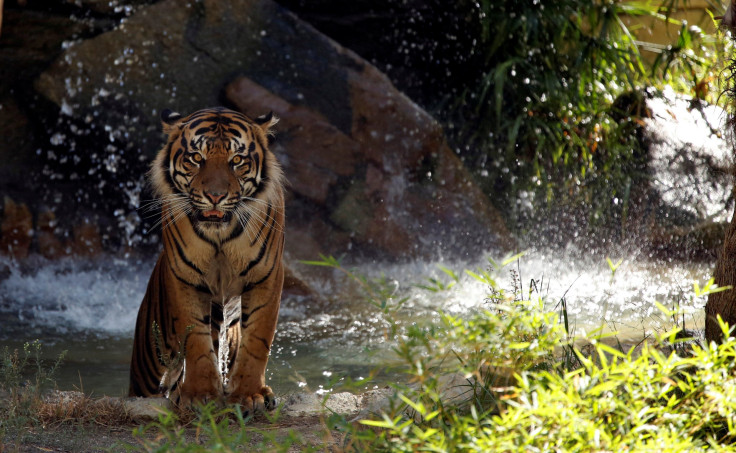Lacoste Limited Edition Polo Shirts With Endangered Animals Logo Sell Out Immediately

The French clothing brand Lacoste teamed up with International Union for Conservation of Nature (IUCN) to temporarily replace its iconic crocodile logo with the images of 10 endangered species in its polo shirts to create awareness about wildlife conservation.
The shirts were part of a limited edition collection and were launched during the Paris Fashion Week on March 1 as part of Save Our Species campaign, which is a three-year partnership between IUCN and Lacoste. The animals include the Burmese roofed turtle, the vaquita, the northern sportive lemur, the Javan rhino, the Cao-vit gibbon, the kakapo, the California condor, the saola, the Sumatran tiger, and the Anegada ground iguana.
The number of shirts with each animal corresponded to the population left in the wild. For example, 30 shirts were produced of the vaquita, 40 of the northern sportive lemur, 150 of the Cao-vit gibbon, 157 of the kakapo, 231 of the California condor, 350 of the Sumatran tiger, etc. The most number of shirts were produced of the Anegada rock iguana — 450. A total of 1,775 polo shirts were produced, and all of them were sold out.
This is the first time the company has sold shirts featuring other animals. The proceeds from the sales went to the IUCN, which is an international organization working to conserve nature and promote sustainable use of natural resources.
The animals were selected by IUCN, Lacoste and French advertising agency BETC. Currently, the IUCN has listed 8,455 animals as endangered.
IUCN in a statement said, “The Lacoste team has created 10 limited edition polo shirts, where its iconic crocodile leaves its historic spot to ten threatened species. Together these rare reptiles, birds and mammals champion the plight of all known threatened species.”
“For IUCN in its 70th anniversary year, not only is this an opportunity to engage with business to help achieve its mission, but it also fits with the SOS open partnership approach which invites support from all sectors of civil society to bring their respective skills and competencies to bear in scaling up the fight on extinction,” the statement continued.
Lacoste’s move was lauded by wildlife expert Jeff Corwin, who spoke to CNN, saying, “It's a great start and I'm hoping it's just the beginning and inspires other companies to follow suit. Maybe Jaguar will do something for jaguars. Ram trucks maybe will start protecting big horn sheep. Generating awareness is equally important to fundraising because in order to solve the problem you need to understand the challenges.”
The company’s original logo — the crocodile — was adapted in 1936 because it was the name given to French tennis champion Rene Lacoste, who is also one of the founders of the clothing brand, due to his tenacity on the court.
© Copyright IBTimes 2025. All rights reserved.





















